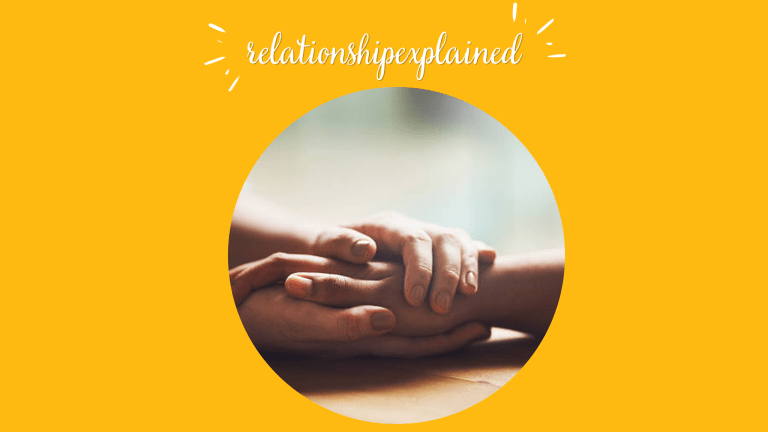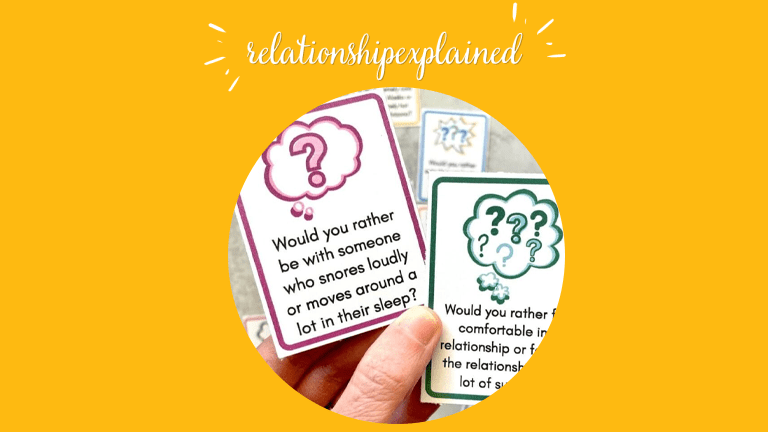Connection in a Relationship
Feeling disconnected from your partner can be unsettling, but it's a common challenge many couples face. The key to a fulfilling relationship lies in nurturing the bond you share, which can often be overlooked amidst life's hustle and bustle. Connection is the cornerstone of intimacy, offering a sense of safety and mutual understanding that enhances […]
Feeling disconnected from your partner can be unsettling, but it's a common challenge many couples face.
The key to a fulfilling relationship lies in nurturing the bond you share, which can often be overlooked amidst life's hustle and bustle. Connection is the cornerstone of intimacy, offering a sense of safety and mutual understanding that enhances relationship satisfaction. But how do you fortify this essential element in your partnership?
Well, we'll be going over:
- What steps can you take to deepen your emotional connection?
- How can overcoming common obstacles pave the way for a stronger bond?
- What role does continuous effort play in sustaining your connection?
Let's dive in!
Key Takeaways
- Connection is a crucial aspect of a healthy relationship.
- Building and maintaining connection can be challenging, but it's worth the effort.
- With the right strategies and mindset, you can strengthen your bond and build a lasting, fulfilling relationship.
The Importance of Connection in Relationships
Understanding Connection
Connection is the foundation of a healthy relationship. It is the bond that brings two people together and keeps them close. A strong connection helps you feel comfortable with your partner, which leads to a sense of security and trust. When you feel connected to someone, you are more likely to share your thoughts and feelings with them. This openness fosters intimacy and closeness, which are essential for a healthy relationship.
The Role of Connection in Healthy Relationships
Connection plays a crucial role in healthy relationships. It helps you and your partner manage stress and anxiety by providing comfort and support. When you feel connected to someone, you can rely on them to be there for you during difficult times. This support can help you cope with stress and anxiety, which can improve your overall well-being.
Connection also helps you communicate better with your partner. When you feel connected to someone, you are more likely to understand their perspective and be empathetic towards them. This understanding can help you communicate more effectively, which can lead to a stronger relationship.
Moreover, connection is not limited to romantic relationships. It is also important in friendships. When you have a strong connection with your friends, you can rely on them for support and comfort. This can help you manage stress and anxiety, and improve your overall well-being.
In conclusion, connection is a vital component of healthy relationships. It provides comfort, support, and intimacy, which are essential for a strong and lasting bond. Whether it's with your partner or friends, nurturing your connections can lead to a happier and healthier life.
Building Connection in Relationships
Building a strong connection with your partner is essential to maintaining a healthy and fulfilling relationship. There are several ways to build and maintain this connection, including effective communication, shared activities and experiences, and intimacy and affection.
Effective Communication
Effective communication is one of the most important factors in building a strong connection with your partner. It involves actively listening to your partner, expressing your thoughts and feelings clearly, and being open and honest with each other. When communicating with your partner, it is important to avoid criticism, defensiveness, and contempt, as these negative patterns can damage the connection between you and your partner.
Shared Activities and Experiences
Shared activities and experiences can help strengthen the connection between you and your partner. Whether it's going for a walk, having a date night, or volunteering together, these activities can help you create new memories and deepen your emotional connection. It's important to make time for these shared experiences, especially if you are busy with work or other commitments.
Intimacy and Affection
Intimacy and affection are also important components of building a strong connection with your partner. This can include physical touch, such as hugging or holding hands, as well as emotional intimacy, such as sharing your thoughts and feelings with each other. It's important to show your partner love, respect, and compassion, and to make an effort to avoid conflict and compromise when disagreements arise.
Building a strong connection with your partner takes time and effort, but it is essential to maintaining a healthy and fulfilling relationship. If you are struggling to build or maintain this connection, consider seeking the help of a therapist or psychologist. They can provide you with the tools and support you need to strengthen your relationship and improve your mental health. Remember that building a strong connection with your partner is an ongoing process, and it requires patience, commitment, and a willingness to grow and learn together.
Challenges to Connection in Relationships
Building a strong connection in a relationship requires effort and commitment from both partners. However, there are several challenges that can hinder the development and maintenance of a healthy connection. In this section, we'll explore some of the common challenges to connection in relationships and how to overcome them.
Conflict and Disagreements
Conflict and disagreements are a natural part of any relationship. However, when not handled properly, they can lead to a breakdown in communication and connection. Arguments and disagreements can cause stress and anxiety, leading to a breakdown in trust and security. To overcome this challenge, it's important to learn effective communication and conflict resolution skills. This includes active listening, expressing yourself clearly and calmly, and finding common ground.
Trust and Security Issues
Trust and security are essential components of a healthy relationship. However, issues such as infidelity, criticism, and defensiveness can erode trust and create feelings of insecurity. If you're struggling with trust and security issues, it's important to seek the help of a mental health professional or therapist. They can provide you with the tools and support you need to rebuild trust and create a more secure relationship.
Mental Health and Emotional Well-being
Mental health and emotional well-being are also important factors in building a strong connection in a relationship. Anxiety, depression, and other mental health issues can make it difficult to communicate effectively and connect with your partner. It's important to prioritize your mental health and seek the help of a mental health professional or counselor if needed. Additionally, taking care of your emotional well-being through self-care practices such as exercise, meditation, and spending time with loved ones can help you feel more connected and secure in your relationship.
In conclusion, building and maintaining a strong connection in a relationship requires effort and commitment. By addressing common challenges such as conflict and disagreements, trust and security issues, and mental health and emotional well-being, you can create a more fulfilling and connected relationship. Remember to prioritize communication, seek help when needed, and take care of yourself and your partner to foster a strong and lasting connection.
Maintaining Connection in Relationships
Maintaining a strong connection in a relationship requires continuous effort and commitment from both partners. Here are some ways to maintain a strong connection in your relationship:
Regular Communication
Communication is the key to maintaining a strong connection in a relationship. Make sure to communicate your thoughts, feelings, and needs to your partner regularly. This will help you both understand each other better and avoid misunderstandings. Try to set aside some time every day to talk to your partner. It could be over breakfast, during a walk, or over a cup of coffee.
Quality Time Together
Spending quality time together is essential to maintaining a strong connection in a relationship. Plan a regular date night or set aside a few hours every week to do something you both enjoy. It could be trying out a new restaurant, going for a walk, or doing an activity together. This will help you both feel more connected and fulfilled in your relationship.
Continuous Effort and Commitment
Maintaining a strong connection in a relationship requires continuous effort and commitment from both partners. Make sure to show your partner compassion, respect, and compromise. Set goals together and work towards them. Try volunteering together or doing something that makes you both feel fulfilled. This will help you both feel more connected and satisfied in your relationship.
Remember, maintaining a strong connection in a relationship takes energy and emotional intimacy. Try out new ideas and ways to connect with your partner. Make sure to understand your partner's love language and outlook on life. By doing so, you can create a secure and loving atmosphere that will help your relationship thrive.
Conclusion
In conclusion, connection is a vital component of a healthy relationship. It is essential to maintain an emotional connection with your partner to build intimacy, trust, and understanding. Communication is key to establishing and maintaining this connection. Taking the time to talk and listen to your partner can help avoid conflict and hurt feelings.
It is also important to make time for each other. Busy schedules and the demands of life can make it challenging to spend quality time with your loved one. However, making an effort to schedule date nights, engaging in activities together, or simply taking a walk can help strengthen your bond.
In addition to your romantic relationship, connection with family, friends, and community can also contribute to life satisfaction and fulfillment. Volunteering, attending social gatherings, and engaging in hobbies can help you establish social connections and build a support system.
It is essential to be aware of negative patterns in your relationship that can hinder your connection, such as criticism, defensiveness, and passive-aggressive behavior. Seeking counseling or therapy can help you gain awareness and develop strategies to avoid these patterns.
Finally, it is important to prioritize your mental and physical health. Engaging in activities that bring you joy, setting boundaries, and seeking professional help when needed can help you maintain emotional and physical well-being. Taking care of yourself can also benefit your relationship by providing you with the energy and compassion to connect with your partner.
Overall, connection is a crucial aspect of a healthy and fulfilling life. By prioritizing connection in your relationships and daily activities, you can build strong, supportive relationships and improve your overall well-being.
Frequently Asked Questions
What are some signs of a strong emotional connection in a relationship?
A strong emotional connection in a relationship can be indicated by a number of signs. These include:
- A sense of trust and safety when you are with your partner.
- The ability to communicate openly and honestly with each other without fear of judgment.
- A shared sense of humor and enjoyment of spending time together.
- A feeling of mutual respect and admiration.
- A willingness to compromise and work together to overcome challenges.
What are the different types of connections that can exist in a relationship?
There are several different types of connections that can exist in a relationship, including:
- Emotional connection: This involves feeling a deep sense of intimacy, trust, and vulnerability with your partner.
- Physical connection: This involves feeling attracted to your partner and enjoying physical touch and intimacy.
- Intellectual connection: This involves sharing similar interests and being able to engage in stimulating conversations with your partner.
- Spiritual connection: This involves feeling a sense of shared values and beliefs with your partner.
Can a connection with someone be unexplainable? If so, what does it mean?
Yes, it is possible to feel a strong connection with someone that is difficult to explain. This may be due to a variety of factors, such as shared experiences or a strong sense of chemistry. While it may be difficult to put into words, this type of connection can be a sign of a deep emotional bond.
What are some common reasons for a lack of emotional connection in a relationship?
There are several common reasons why couples may struggle to feel a strong emotional connection with each other. These include:
- A lack of open and honest communication.
- Feeling disconnected due to a busy or stressful lifestyle.
- A lack of shared experiences or interests.
- Past experiences or trauma that make it difficult to trust or connect with others.
How can couples work on building and maintaining emotional connection in a relationship?
There are several ways that couples can work on building and maintaining an emotional connection in their relationship. These include:
- Making time to connect with each other on a regular basis, such as through date nights or shared hobbies.
- Practicing active listening and open communication.
- Being willing to compromise and work together to overcome challenges.
- Showing appreciation and affection for each other.
Is it common for couples to experience a loss of connection over time? If so, what can be done to address it?
Yes, it is common for couples to experience a loss of connection over time. This can be due to a variety of factors, such as stress, changes in lifestyle, or a lack of effort to maintain the relationship. To address this, couples can try:
- Reconnecting through shared experiences or trying new things together.
- Communicating openly and honestly about their feelings and needs.
- Making time to prioritize the relationship and show appreciation for each other.












